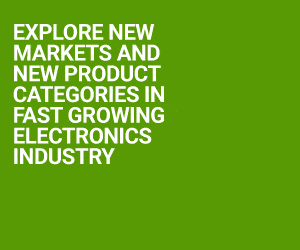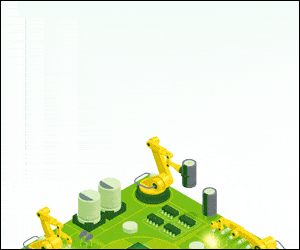With the whole of the Indian automobile industry moving towards electric mobility to meet the government’s goal of transition to electric vehicles by 2023, the opportunities in this sector is enormous. Automobile companies are looking for not just electronics engineers, but also open source developers, ethical hackers, design engineers and many more. To understand the scenario better Ankita KS from EFY Group had an interaction with Satish Sundaresan, Vice President Elektrobit Automotive GmbH & Managing Director– Elektrobit India, where he shares about the scope and future of electric mobility, hiring trends and skillset required. Excerpts follow..
Q: With new developments in connected vehicles and autonomous vehicles, what are the type of jobs that opens up?
For connected and autonomous technologies, we see job openings beyond the traditional automotive embedded applications. Today we have many more jobs for traditional programming language experts, user experience designers, open source software compliance, operating systems beyond the traditional real time automotive OS like linux and android.
We also see demand in skills like cybersecurity, network operations and wireless technologies that we usually associated with consumer electronics, in our past. There is also greater emphasis to hire talents with skills like performance testing, user experience, test driven development practices etc. Digital simulation, mock-ups is another avenue for job-creation. In summary, we think the developments in the automotive industry greatly expands the diversity of the skills we will need in the future.
Q: What are the skillsets required for someone who wants to work on connected vehicles?
In-Vehicle networking architecture is getting complex and is similar in many ways to the digital web that we are used to at home and workplaces, today. We look for engineering minds that comprehend the inter-play of open source technologies in the consumer electronics world and its inter-connection to an in-vehicle automotive platform. We also look at the candidate’s ability to help elaborate the use-case e.g. over-the-air communication for vehicle-cloud exchange. In simple words, programming languages, operating systems, inter-connectivity, inter-operability are few examples of skillsets that we believe is needed to work on connected vehicles.
Q: What would be your advice to professionals working in electronics or IT sector and eyeing a role in the connected space? Should they prepare themselves for making a switch? How?
This is an exciting space to be, given our ability to influence the future of mobility. Our advice would be to switch to this industry and help us make a better world.
India, specifically, has the talent and technical skills to not just offer this expertise to the global arena but also enhance our local eco-system. Therefore, our advice would be to keep building on your strong electronics or IT technical fundamentals and seek out organizations like ours, to implement these connected use-cases with your skills and our experience. The technologies are complex but not impossible, so don’t be overwhelmed and help transform the transportation industry!
Q: What is the type of job roles that Electric mobility opens up? What are the skillsets required?
Electric mobility has a direct impact on how the vehicle is going to be manufactured mechanically, electrically and electronically. Electrical and electronics engineering take higher prominence than before, and software engineering will play a strategic role in driving the vehicle. The percentage of software in the car will steadily increase with electrification and this implies more opportunity for in-vehicle development and also around the infrastructure. An example use-case is how to smart-charge a car in the Indian traffic situation?
This has a domino effect in creating new jobs beyond just the vehicle manufacturing, like the possible redesign to our power lines at home and offices to accommodate ‘charging stations’, architectural changes to the way real-estate will be setup in the future, and also creating entrepreneurial solutions for communication between the vehicle owner and power grids. The possibilities are enormous, and we are excited not just as an employer but also for the rapid advancement we will see in one life time in this space.
Q: What is the type of roles for which you’re planning to hire? Can you share brief idea about what these roles entail?
At Elektrobit, we look at networking specialists, software engineers, design professionals, cyber security champions, test and validations experts and also system architects who can help analyze the car manufacturer’s demands, implement the business requirements and also find solutions to topics like vehicle to vehicle and vehicle to infrastructure communication. An use-case we often talk about is driving down Bangalore traffic in our electric vehicles with the possibility that I may not reach home with the available battery power, given our unexpected traffic snarls and road conditions. This leads to various real-time decision making like changing the navigational route map so that the car brings me home faster or find the next safe charging point or communicate with the vehicles in front to know what the traffic situation is to help decide the next course of action.
These are the kind of problems we will solve with the advent of electric mobility and it makes for exciting opportunities for our young engineering minds. Lastly, connected electrification also opens the risks of vehicular hacking. So, we think the industry also needs ‘ethical hackers’ who can help avoid cyber-attacks via charging stations or over the air connections. So, the possibilities are limited only to what we want to address.
Q: For an engineering fresher who wants to get into automotive software domain, what are the skillsets that he should have?
At Electrobit, we look for candidates with the following:
- Passion: This passion for the automotive market can vary from how a car drives all the way to how an engineer wants the automobile to cater to his/ her personal needs (e.g.: shared mobility, mobile work stations, robo-taxis, green environment etc.)
- Problem solving: the ability to estimate the situations that may arise in our business and their inclination and means to resolve it. We believe the future will be more dynamic and we must also equip our engineers to solve problems on their own with sufficient empowerment.
- Technical: Engineering fundamentals are key and experience in certain programming languages and/ or operating systems are helpful. Automotive specific trainings are provided in-house and we are proud to have such training academies open for the industry at large and also engineering students who want to specialize in specific domains like user experience, AUTOSAR or connected mobility.




